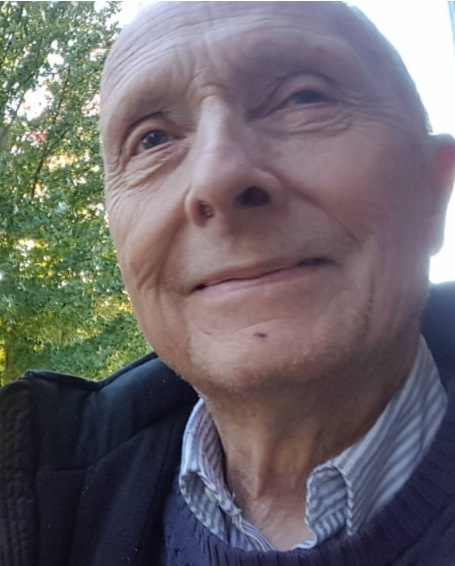

Obituary
Obituary of Robert McCluer Calhoon
Please share a memory of Robert to include in a keepsake book for family and friends.
Robert McCluer Calhoon, historian, teacher, and scholar of religion and politics in the US backcountry died from complications to dementia on January 14, 2022 in the memory care unit at Deerfield Ridge Assisted Living in Boone, NC. His wife Doris preceded him in death in 2009 as did his sisters Mary Nelson and Peggy Robbins in 2006 and 2018 respectively. He is survived by his daughter Claudia Calhoon; by an informally adopted family: son Y Nuh, daughter-in-law Ha Bek, and granddaughter Zina Ecam; by his friend and companion later in life, Susan Kramer, and by countless friends, colleagues, and mentees.
Robert wrote or edited nine books, contributed to another sixteen volumes, and published countless articles. From 1996 to 2000, he proudly served as the Faculty Marshal and Mace Bearer at UNCG Commencement. In 2008, he was honored for 30 years of teaching with the Order of the Long Leaf Pine Award by Governor Mike Easley. As historian Rebecca Brannan has noted, Robert was someone who "epitomizes intellectual life as a joyous enterprise always open to new people and new conversations."
Robert was born on October 3, 1935 in Pittsburgh, PA to Mr. and Mrs. Forrest and Elizabeth Calhoon. He grew up in the Pittsburgh suburb of Mt. Lebanon and attended the College of Wooster, in Ohio where he developed from a somewhat lackluster student into a lifelong scholar of history, doing his senior year independent study on Lincoln Steffens in the Russian Revolution. He taught junior high school in Cleveland before entering the Ph.D. program in history at what was then Western Reserve University in Cleveland Ohio. There he studied with his mentor, American Revolution scholar Jack P. Green and with whom he wrote his dissertation on the Loyalists to the British in the American Revolution.
in 1964, for reasons that he later said he didn't understand at the time, he turned down a tenure-track position at DePauw University in Chicago while waiting to hear about a one-year instructor position at the University of North Carolina at Greensboro (UNCG). He moved to Greensboro in 1964 and there, during a visit to UNCG's Jackson Library, he met a clerk in the Government Documents office named Doris Abernethy. They were married in June 1965. Their daughter Claudia was born on January 14, 1973, shortly before the publication of his first book, the Loyalists in Revolutionary America.
Robert's student Joseph Moore notes that in the 1970s, even as this book remade the scholarly understandings of Loyalists, it also laid the groundwork for a subsequent wave of scholarship that both challenged and built upon his work. Moore notes, "the surest sign you were doing something right, was that the field needed to move beyond your questions to answer different ones, and he felt good about handing the baton to a bevy of scholars that were doing just that."
As he started to explore the political and religious history of North Carolina, he developed an interest in the interplay of religion and politics, especially in the US backcountry, the rural corridor that stretched from southern Pennsylvania to Augusta, Georgia. This research led him to explore the phenomena of a type of US political moderation that appeared, in his words, as a "response mechanism within American political culture to manifestly destructive levels of partisanship and polarization." This pursuit developed into a lifelong project to understand and articulate the importance of moderation in US politics, past and present.
At UNCG, he taught generations of students in the History Department, and in the Residential College, now one of several residential learning communities for students within the university. In 2005 when UNCG expanded its offerings to include a Ph.D. in American History, he fulfilled a career-spanning goal supervising Joseph Moore, Corey Stewart, and Terry Campbell as they developed and completed their dissertations.
In his personal life, Robert was an active member of Lutheran Church of the Resurrection, where he served on the church council, serving as a lector and leading discussions on religious history and theology. In 1986, he participated in the congregation's efforts to work with a group of Montagnard refugees from Vietnam to support them to resettle in Greensboro, which led to lifelong friendships in the Greensboro Montagnard community. In 2002, he helped respond to his congregation's call to build the Lynda Eklund Center for the Developmentally Disabled, which collaborates with the ARC of High Point to provide independent housing for people with disabilities.
A lifelong lover of the outdoors, Robert chose to spend his final years in the mountains of North Carolina. He purchased a house in Sugar Grove, NC in 2010 and joined Holy Cross Episcopal Church in Valle Crucis, NC. In 2014-15 he taught part-time at Appalachian State University. In 2015, he suffered from a form of vasculitis called temporal arteritis, which led to the sudden and irreparable loss of his vision. Adapting to a disability was sometimes frustrating, but a process that he took in stride with humor and grace. During the final years of his life, he enjoyed visits and phone calls from friends like Ralph Lentz, and Bud Gerber, visits to Holy Cross, and dining out with his daughter.
He is remembered by all who knew him for his kindness, brilliance, and humility.
A memorial service is planned in Greensboro on Saturday, June 18, 2022, at 3:00 pm. It will take place at the Alumni House at the University of North Carolina at Greensboro. A second one will be held on June 26, 2022, at 1:30 pm at the Church of the Holy Cross in Valle Crucis.
In lieu of flowers, gifts in honor of Robert's life can be made out to:
Everytown USA
FaithAction International House
Center for New North Carolinians at UNCG
Campaign for Tobacco-Free Kids
Austin & Barnes
Funeral Home and Crematory
194 Queen Street
Boone, North Carolina
28607
Phone: (828) 264-8888
Fax: (828) 264-8889

